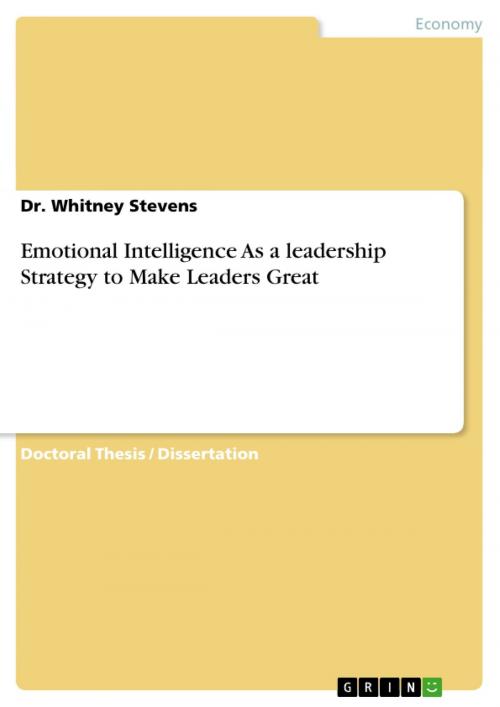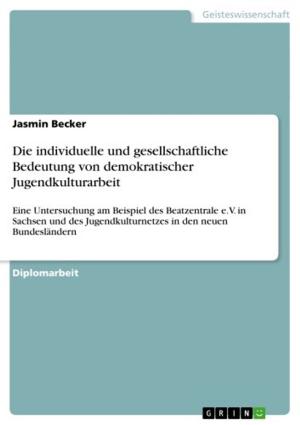Emotional Intelligence As a leadership Strategy to Make Leaders Great
Business & Finance, Management & Leadership, Management| Author: | Whitney Stevens | ISBN: | 9783656084105 |
| Publisher: | GRIN Verlag | Publication: | December 16, 2011 |
| Imprint: | GRIN Verlag | Language: | English |
| Author: | Whitney Stevens |
| ISBN: | 9783656084105 |
| Publisher: | GRIN Verlag |
| Publication: | December 16, 2011 |
| Imprint: | GRIN Verlag |
| Language: | English |
Doctoral Thesis / Dissertation from the year 2010 in the subject Business economics - Business Management, Corporate Governance, University of Phoenix, language: English, abstract: Twenty successful leaders in the United States participated in the study to explore the extent to which emotional intelligence supports leadership potential and success. Competent managers with strong leadership skills are scarce (Cafolla, 2008). According to Goleman (2001), EQ might predict up to 90% of the variance in leadership effectiveness by uncovering strong positive effects of leadership commitment and effectiveness that support strong influences on leadership effectiveness. This modified Delphi study extended research on the emotional intelligence competencies to explore future possibilities of improving leadership success at mid- to high-level management tiers. The results of this study provide evidence to support emotional intelligence and leadership potential, validating the need for EQ as a leadership strategy. The Delphi study results recommended training to increase EQ in leaders and asserted that leaders with high levels of EQ are likely to improve overall organizational results, reduce turnover, reduce fraud and low performance, improve moral, and make organizations a better place to work.
Doctoral Thesis / Dissertation from the year 2010 in the subject Business economics - Business Management, Corporate Governance, University of Phoenix, language: English, abstract: Twenty successful leaders in the United States participated in the study to explore the extent to which emotional intelligence supports leadership potential and success. Competent managers with strong leadership skills are scarce (Cafolla, 2008). According to Goleman (2001), EQ might predict up to 90% of the variance in leadership effectiveness by uncovering strong positive effects of leadership commitment and effectiveness that support strong influences on leadership effectiveness. This modified Delphi study extended research on the emotional intelligence competencies to explore future possibilities of improving leadership success at mid- to high-level management tiers. The results of this study provide evidence to support emotional intelligence and leadership potential, validating the need for EQ as a leadership strategy. The Delphi study results recommended training to increase EQ in leaders and asserted that leaders with high levels of EQ are likely to improve overall organizational results, reduce turnover, reduce fraud and low performance, improve moral, and make organizations a better place to work.















